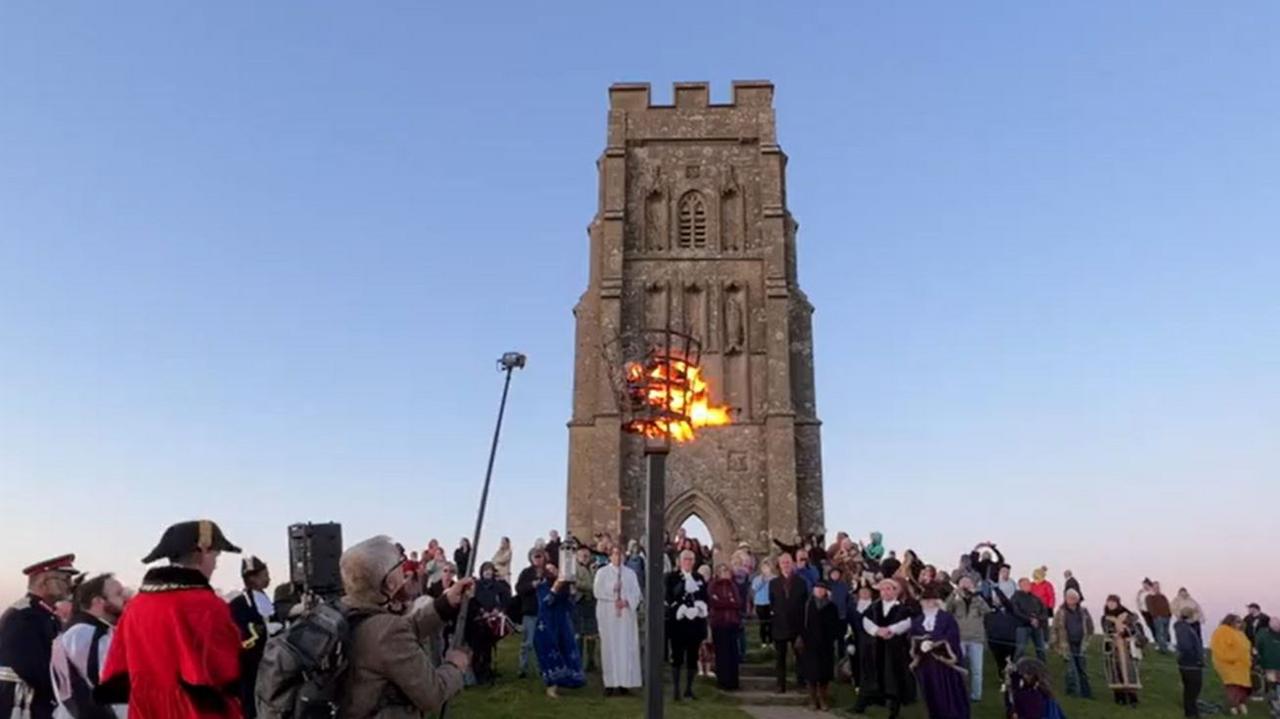'Most broken man' saved by air ambulance
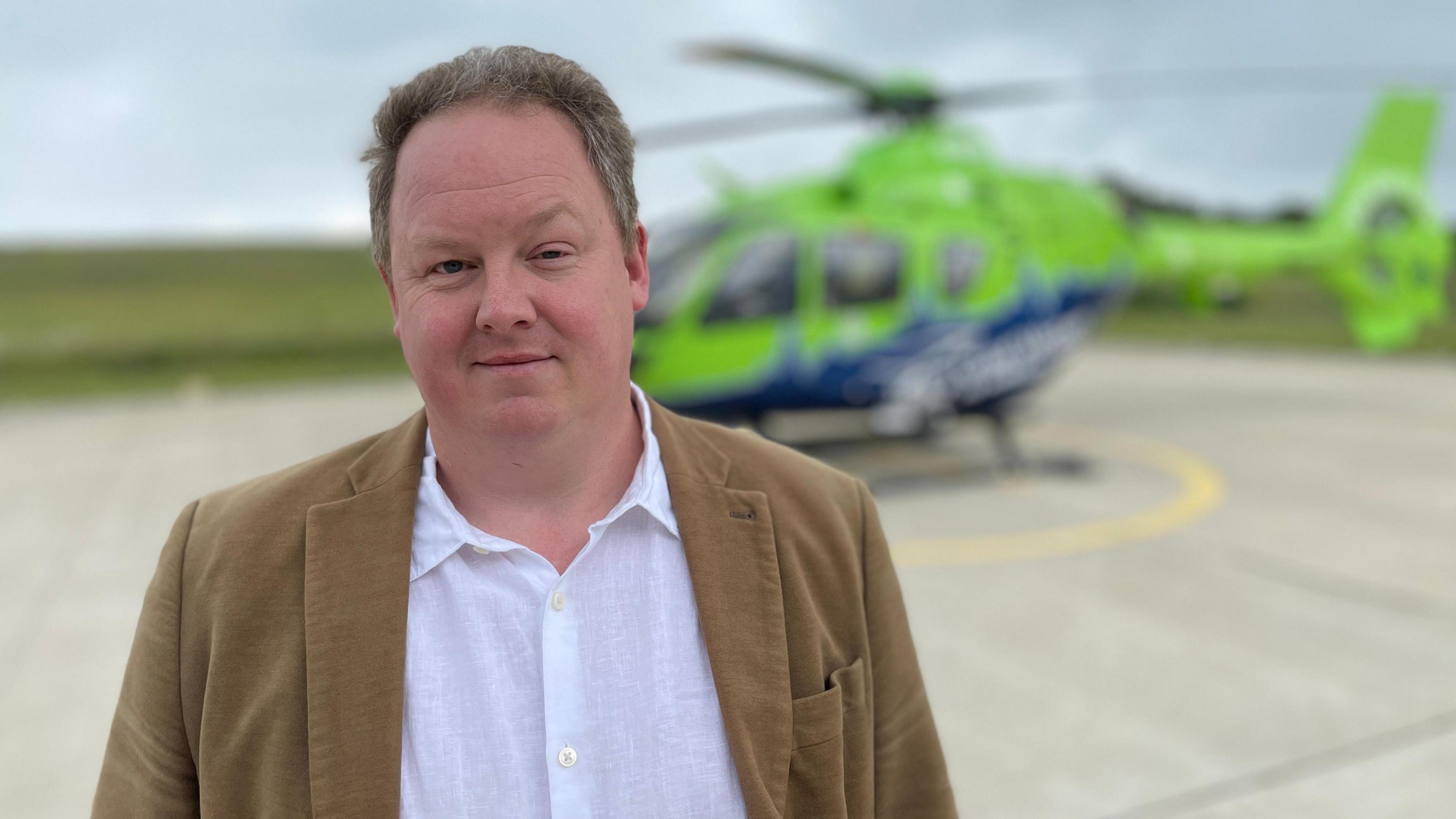
Simon Clark was involved in a collision and was temporarily paralysed
- Published
A former patient that paramedics described as the "most broken man" they had ever helped from a crash, has set his sights on trekking to Everest base camp.
Simon Clark, 44, from near Cirencester was involved in a fatal crash on the A429 on 17 October 2019 that killed his partner and left him with catastrophic injuries.
He was temporarily paralysed but has since recovered the ability to walk and returned to thank Great Western Air Ambulance Charity medics for saving him.
He said it was "mind blowing" he was still alive. Tim Ross-Smith, operations officer for the air ambulance service, said: "He should not be alive, there is a number of injuries he suffered that should have killed him there and then."
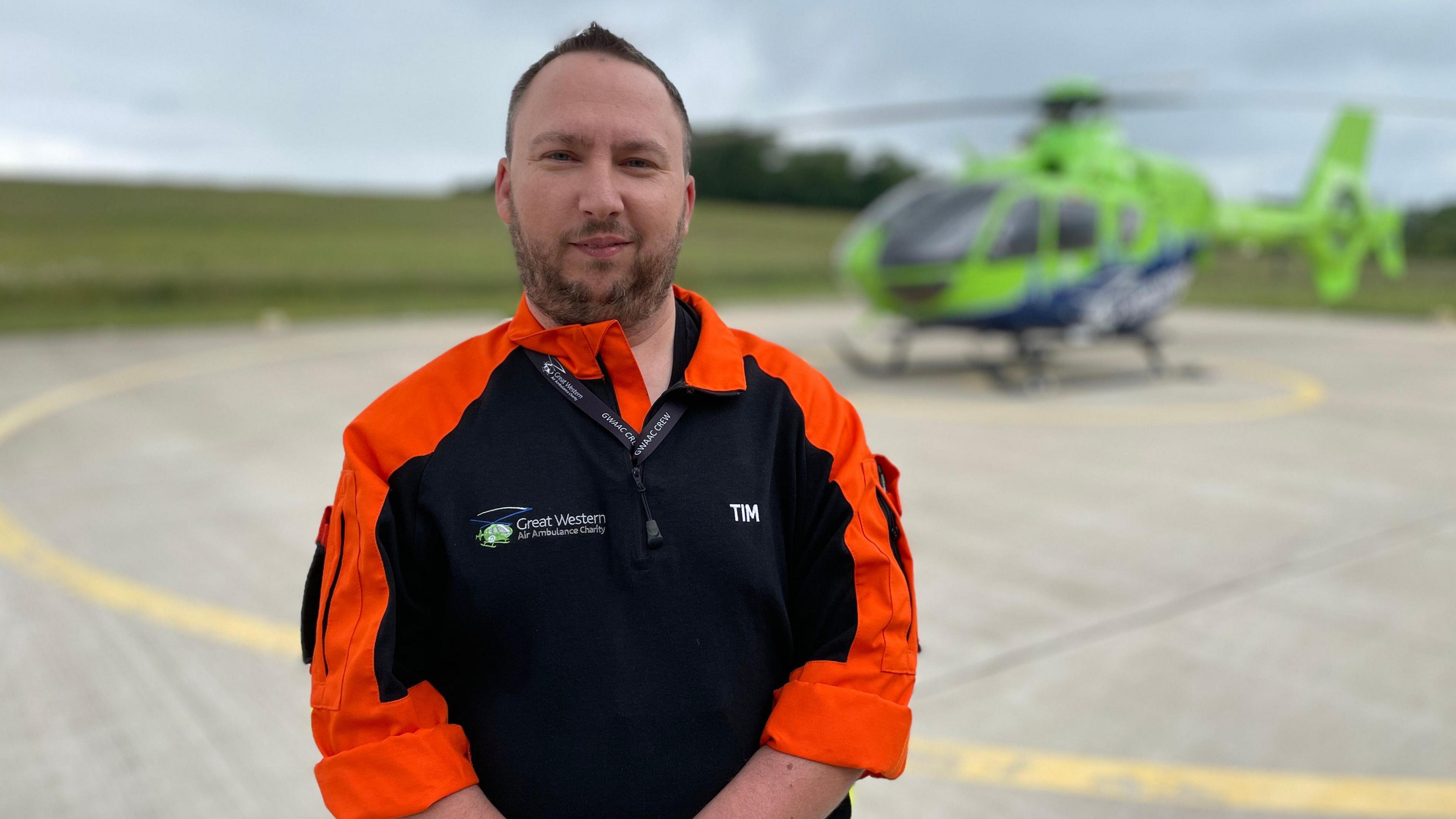
Operations Officer Tim Ross-Smith said it was incredible that Simon Clark is alive
Mr Clark and Lindy, his partner of 22-years, were driving to a supermarket in Cirencester after work to buy some groceries.
"It was just a normal run to the supermarket like we've done thousands of time.
"Unfortunately on this occasion Lindy lost control of the car and we were involved in a head-on collision with another car just outside of Cirencester.
"I woke up about two and half months later to find out I had been in a coma and had suffered quite extreme injuries - I was paralysed from the neck down - and that Lindy had unfortunately passed away.
"Nobody was at fault it was a complete accident."
Mr Clark's family was warned by doctors at Southmead Hospital in Bristol he might "never wake up from the coma" because of the extensive brain damage and that if he did wake up he would be severely disabled.
"I'd have been on life support for the rest of my life and they were saying I may only have months or a year or two at best.
"At that point I was completely paralysed and I couldn't speak.
"I had to learn to blink so I could communicate and I'd blink every time someone pointed to an appropriate letter."
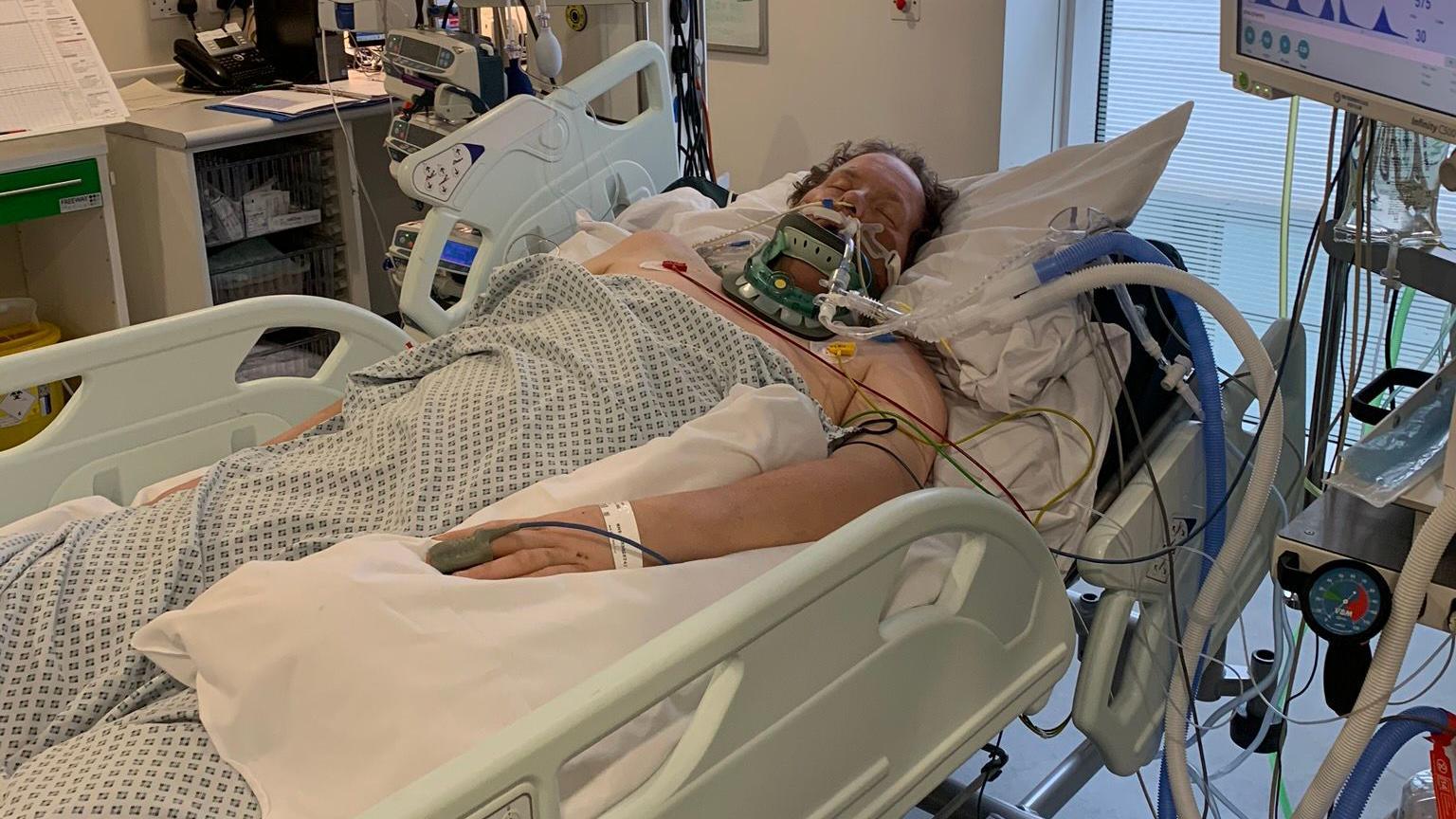
Mr Clark was in a coma for more than two months
Mr Clark said his initial messages were all about his partner Lindy.
"Apparently on several occasions when they tried to impart more information, particularly around the loss of Lindy, I would have a heart attack and need to be resuscitated."
Eventually, messages of "defiance" kicked in and Mr Clark set himself the aim of walking again.
"For me every time they said I couldn't do something, that became a goal."
He taught himself to walk again and said he was determined not to allow his injuries to hold him back or to define him.
'We rely on donations'
"The most important thing is to be able to come back here and say thank you."
"I feel like I owe these guys a phenomenal debt, I'll never get over it or repay it or say thank you enough," he said.
Mr Clark said he aimed to trek to base camp in September and was also thinking about walking to the North Pole.
Mr Ross-Smith said: "To see him walking around and the things he has achieved is just incredible.
"The team were incredible, they have undertaken a number of very rapid interventions to save his life including a blood transfusion."
He said he agreed with the label his colleagues had given Mr Clark as the "most broken man" they had ever treated.
"We are a charity, we rely completely on donations to do what we do and our aim is to bring the hospital to you with our critical care team.
"We see around 2,000 patients a year and our call volumes have gone up 20 per cent."
Follow BBC Gloucestershire on Facebook, external, X, external and Instagram, external. Send your story ideas to us on email or via WhatsApp on 0800 313 4630.
Related topics
- Published7 June 2024
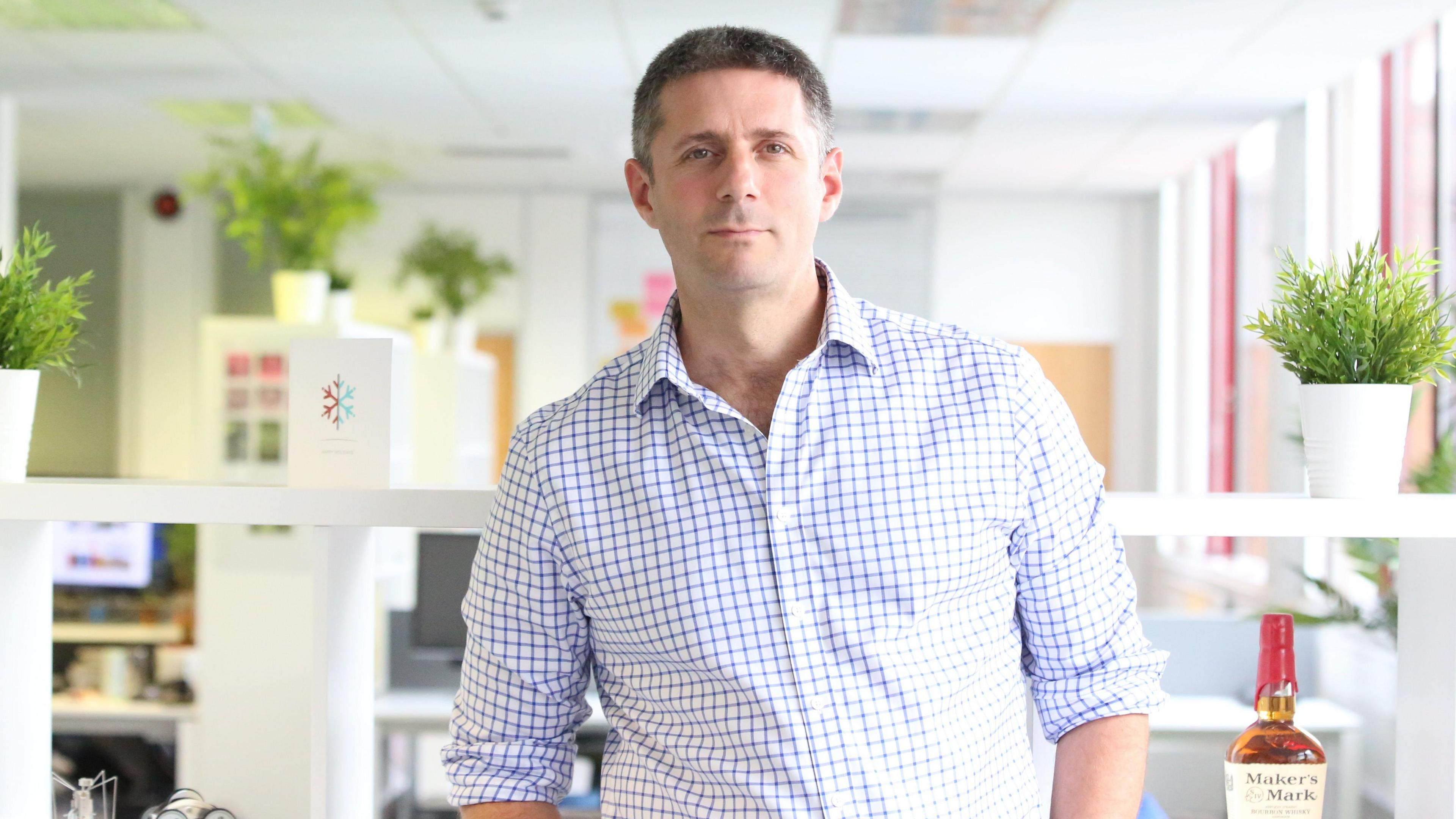
- Published6 June 2024
